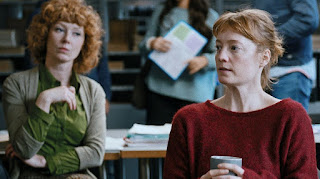Cinéfest 2024 Highlights
Sudbury’s Cinéfest 2024 did not disappoint. I was only able to watch eleven films this year (I watched 14 last year), but the quality was very high, with six standouts that got at least ***+ - **** (one step up from ***+). These six films are briefly (or not so briefly in some cases) reviewed below. Only one of them is an English-language film - the only film made in North America is French-Canadian. I was pleased to discover that six of the eleven films I watched were directed by women and seven were written by women. In the world of independent cinema (unlike Hollywood), the overwhelming domination of men in those two roles is largely a thing of the past. This is good news for me as I often find films made by women easier to relate to (three of my six favourite films this year were written by women). This year would have had three four-star films were it not that two of those films are so incredibly dark that I had to drop their rating a bit just for the unrelenting bleakness (






